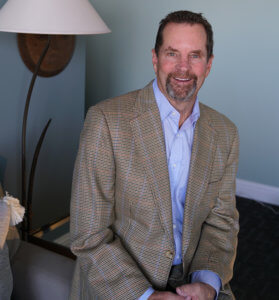How Can I Ever Trust Again?

That is a question I hear in my office every week. Usually, after someone’s partner has lied, stolen, or been unfaithful, or when someone has failed to follow through too many times, trust is broken and can often feel irretrievable.
Trust Can Go Dark at the Speed of Light.
Yes, that fast! Your thinking towards your partner can quickly change – “I trusted you; now I don’t.” And, loss of trust hurts, both emotionally and physically.
Touching someone you’ve lost trust in feels different than before. Being touched by them might hurt – yes, actually physically hurt. Other physical effects might include stomach issues, headaches, and troubled sleep.
The loss of trust can affect your focus, your motivation, and your self-esteem, too. Anxiety and depression are common results when the loss of trust in someone is experienced.
It can completely alter the image you have of your partner and can change how you see yourself.
Broken Trust Seeds Doubt and Fear.
Losing trust in your partner never leads to imagining the best in them or at times, the best in yourself.
In an attempt to protect yourself from further pain, you may imagine the worst. You may find yourself thinking, “I choose to believe that everything my partner does or says is untrustworthy.” You may even stop trusting everything you know about the offender and go on to project this mistrust onto other people and situations.
Loss of trust can cause you to stop trusting your own instincts, knowledge, and history. You may come to rely on a new, self-protecting reality as the truth. This way of thinking can set you up to believe you’re protected from further hurtful situations. But this thinking never lets you grow from your experience, nor heal. It keeps you stuck and unhappy. And maybe, keep you from ever finding trust and happiness again.
Does any of this sound familiar?
Losing Trust Can Affect Our Willingness and Ability to Listen.
And listen we must.
The foundation of any healthy relationship is the willingness to learn about our partners and about who we are with our partners during the easy and the difficult times. Curiosity is part of what brings two people together. The willingness to be curious about why your trust was broken is the first step to your own healing and perhaps the healing of the relationships, too.
And talk we must.
If you’re ever going to move beyond the hurt and distrust you’ll have to be willing to share what the experience has been for you. Your pains, your confusions, your doubts, anger and desires all must be heard by your partner if healing is to begin. You have to be willing to learn and teach.
“Trust Grows Like the Sun Warms.”
This quote, amongst all on my business cards, seems to resonate most with my clients. Trust grows… like the sun warms. How does the sun warm? Gradually. While the sun might appear in the sky early in the morning, it warms us more and more, gradually throughout the day. Re-establishing trust is like a warming sun; it takes time. And with us humans, effort, too.
What Can I Do to Try and Trust Again?
Ah, another question often asked in my office!
I believe most of us want to be seen as trustworthy. Why someone behaves in an untrusting way is complicated and needs to be seriously explored, usually in therapy. For healing to begin and re-trusting to occur, both parties must be curious and willing to put in the work towards change. By addressing the hurt and pain together while practicing new behaviors and patience, you will increase the likelihood your relationship will grow again. Like the warming sun.
Here are some things you can do to begin a trusting relationship again:
- Be open to the possibility that the offender can change and desires to be trustworthy.
- Be the curious listener. Again, there are reasons why people betray trust. Be willing to learn.
- Give the offender opportunities of lesser significance to demonstrate their desire and ability to behave in a trustworthy manner or do what they say they’ll do.
- Over time, you can give the offender opportunities of greater significance to demonstrate their desire and ability to behave in a trustworthy manner. And be the person they say they want to be with you.
- Share your thoughts and feelings along the way in a constructive way. Don’t be afraid of sharing what is true for you.
a) “I get afraid even if you’re only five minutes late.”
b) “It felt good last night when you told me about the text you received.”
c)“I am still hurting and afraid, but I see you are working to being more trustworthy in your actions.”
Trust Can Be Re-Established, Over Time, When Actions Match Words.
Actions / Words… matched. Again. And again. And again.
- One step in the process of trust being re-established is when the offender follows through on doing what they say they will do. And being who they say they will be as a partner.
a. “I will be home at 6:oo tonight” – and they are.
b. “I will be honest with you even when it might be scary to hear what I say” – and they are.
c. “I will stop drinking because I know it’s hurting our relationship” – and they do. - Another important step is to talk about the process; what each of you is experiencing emotionally and behaviorally while actively working to change the relationship. The good news is that trust re-earned can lead to a deep and remarkable loving relationship.
Be Open to The Possibility of Forgiveness.
Forgiveness for when trust is broken is fostered with an understanding; accompanied by honesty, a commitment to consistent actions matching words and, patience.
I encourage you to read my next blog on forgiveness to help you with your journey.